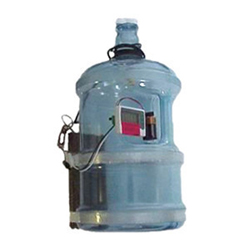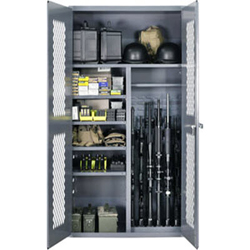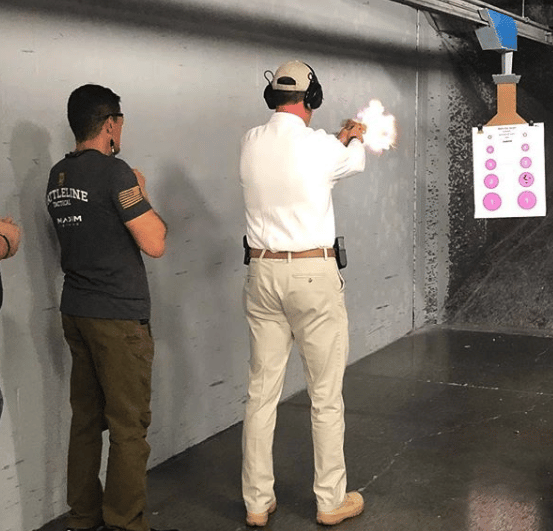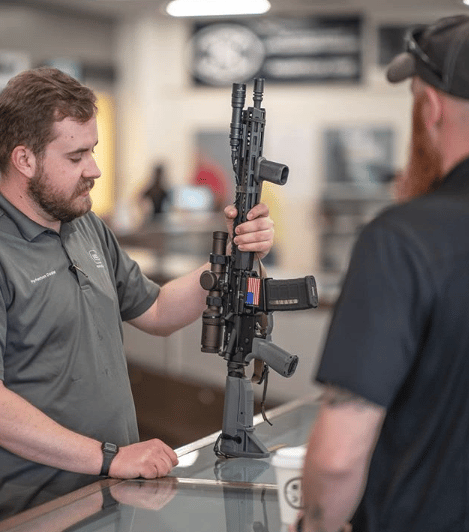
One of the most essential elements for a profitable shooting range business is recruiting, on-boarding, and training your shooting range staff. American customer service expert Shep Hyken observed, “A brand is defined by the customer’s experience. The experience is delivered by the employees.” Your employees can make or break your long-term success. Even if you have 19 all-star employees and only 1 employee who underperforms, your shooting range business is likely to suffer as a result. A single negative customer service experience can hurt your reputation. Conversely, having a reputation as the shooting range with the most engaging and supportive customer service will ensure shooting enthusiasts choose your business time and time again.
THE FACES OF YOUR SHOOTING RANGE
Who You Should Hire
Bruce Nordstrom, the former chairman of one of the most successful department store chains in America, perpetuated the philosophy that you can teach people to sell, but you can’t teach them to be nice. While it is important that employees have a sound understanding of firearms and shooting experience, this should not take precedence over hiring individuals with the right attitude. When building a team, your primary priority should be finding employees who are eager to learn, connect well with others, listen carefully, and ask questions. Supplementary training can ensue as needed.
How to Find the Right People
Where do you find the perfect team member? The answer is more obvious than you might think: Anywhere and everywhere. Pay attention to other service-oriented businesses. Have you recently encountered an impressive server at a local restaurant? Has a sales clerk at a sporting goods store brightened your day with their helpful and positive attitude? Consider appealing to former military or law enforcement personnel. Provided their personality is a match, they will bring experience and credibility to your shooting range business.
Avoid the common pitfall of hiring relatives or friends. Hiring those from your family or social circles may be disadvantageous both professionally and personally. It can be challenging to hold them to your business standards. It is also very difficult to terminate their employment, should the need arise.
Hiring Checklist
In addition to hiring gun range staff who expertly represent your brand, don’t forget these following crucial checks and tests:
- Background and Criminal Record Checks
It is your responsibility to check that members of your gun range staff do not have a record of behavior that could jeopardize your business and the safety of your patrons and other employees. Most shooting range owners require employees to participate in a CCW permit course as part of their training. During the interview, inform candidates that through the process of obtaining a CCW permit, a background check will be performed to verify their eligibility to handle, carry, and own firearms.
- Drug Testing
During the interview, make sure you inform candidates that a drug test will be performed prior the employee’s first day on the job. Additionally, let them know that random drug tests will be performed throughout their employment.
- Lead Safety and Blood Lead Testing
Exposure to lead is one of the risks that accompanies working in a shooting range. It is imperative that you inform new hires about this risk and that you educate them on proper use of personal protective equipment (PPE) to protect themselves. Furthermore, make sure you teach your employees how to avoid spreading lead to other parts of the range, their vehicles, and their homes.
While you should take all appropriate precautions to minimize lead exposure, it is still important that you monitor your employees closely and regularly test their blood lead levels. Test all new hires to obtain a baseline blood lead level. From there, require bi-annual tests for employees who perform range maintenance and annual tests for other employees.
- Work expectations
During the interview, make sure you explain any work expectations such as unusual schedules. For example, do you expect employees to work during nights, weekends, or any holidays? Do you require employees to lift and unload pallets of ammunition or perform any other physically demanding tasks? If so, make sure you discuss these expectations and minimum lifting requirements.
TRAINING AND ONGOING EDUCATION
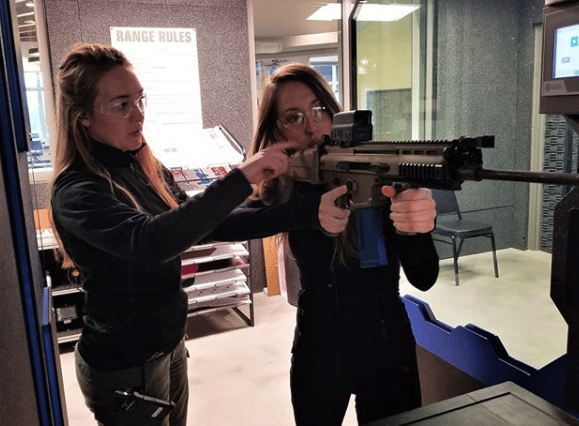
Effective Training Methods
When it comes to training your shooting range staff, make sure you are adaptable in your approach. For example:
- Provide opportunities for hands-on learners to shadow a supervisor or cross-train with another employee.
- Recommend helpful websites, videos, and literature to employees who learn better by studying data.
- Act out potential customer scenarios for employees who can benefit from practicing interpersonal skills.
No matter which training techniques you employ, create opportunities for trainees to teach what they learn. This is a tried and true method for helping individuals retain information.
Ongoing Safety and Emergency Training
Not only should safety and emergency training be at the top of your training agenda, but it is also imperative that this training is ongoing. It is your responsibility to provide regular instruction on handling firearms and how to respond in the event of injuries, theft, and other emergency situations. Role play with range staff how to manage emergency situations in the range. Scenarios can include contacting emergency personnel, calling a cease fire, securing firearms, and administering life-saving first aid.
Furthermore, develop standard operating procedure (SOP) documents for all areas of your shooting range business, such as retail, range check-in, and range operations. Make sure all employees receive these SOP documents and test them routinely to ensure they properly understand and retain the information.
ATF Form 4473
All Federal Firearms Licensee (FFL) businesses are required to properly complete an ATF Form 4473 for each firearm transaction. Given the detailed requirements as well as the potential penalties for errors, it’s important that your employees are trained to fill out the form accurately and are prepared to answer customers’ questions about the form. Employees should also verify that forms are fully completed, legible, and accurate while the customer is present.
According to the NSSF website: “Uncorrected errors on Form 4473s account for six of the top 10 most common violations cited by ATF every year, and three other top 10 violations are related to information found on Form 4473s.” To help combat errors, the NSSF has developed the form 4437 overlay. This is a clear template that may be laid on top of the form 4473 to help your staff check that all form questions have been answered and answered accurately.
You want to provide your patrons with the best possible experience with purchasing a firearm. It is imperative that your staff members are well-trained and confident with this process.
Scheduled Meetings
Holding weekly meetings is important in the busy shooting range business. You need an hour each week where you can reiterate important information, motivate your employees, answer questions, and discuss any changes. Agenda items may include:
- Safety protocols
- Recent safety concerns, near misses, and other items the entire staff should be made aware of
- Store sales performance
- New products
- Upcoming events
- Community involvement opportunities
If it is necessary to hold your meeting outside of business hours, we suggest you disclose this to potential employees during the interview process.
Try to make these meetings enjoyable and consider providing breakfast or dinner for meetings held before or after shooting range operation.
STAFF DEVELOPMENT

Staff Incentives
Incentives are an effective method for keeping your staff motivated. From gift cards and baskets to discounts and product giveaways, incentives can help encourage your employees to meet their goals as well as create friendly competition between co-workers. Furthermore, take advantage of training and product advocacy platforms that reward members for being brand ambassadors. An example is ExpertVoice.com, which provides brand education and offers product discounts upon course completion.
Team-Building Activities
Provide team-building exercises once a month to help build loyalty and positive rapport between employees. As a shooting range owner, you have the opportunity to combine activities with opportunities to educate your staff on your range operations and products. Why not host an interdepartmental shooting contest in your range? Make sure you create hype in the run-up by designating team names, making T-shirts for the competitors, and disclosing the prizes in advance.
Consider activities outside your facility. For example, invite and pay for staff to attend upcoming firearms shows and shooting contests. Furthermore, take the time to learn about your employees’ hobbies and look for opportunities to incorporate their interests into your group excursions.
SOFT OPENING
A soft launch is essential for your shooting range business. Opening your doors quietly or serving a limited audience before your grand opening will allow you and your team to iron out the kinks, such as identifying which processes need improvement and where more training is required. By ensuring your employees, shooting range operation, and retail are performing at optimum capacity, you will make an exceptional and long-lasting impression on your customers when you officially open for business.
Authors:
Diana Rotolo
Diana joined Action Target in 2012 as an associate shooting range consultant. She is currently the sales manager for range retail programs. From selling and designing shooting facilities to helping range owners find the most efficient and profitable approaches for operating their business, Diana has an invaluable understanding of the shooting range industry from the customer’s point of view.
Mikaela Hansen
As a technical and marketing writer, Mikaela collaborates with multiple Action Target personnel to develop installation manuals, user guides, bid specifications, press releases, and newsletters. Communicating to a variety of audiences about Action Target’s products and services has given Mikaela the opportunity to examine multiple dimensions of the shooting range industry.





